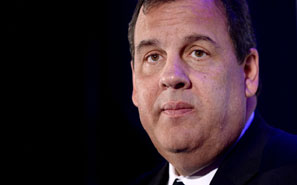
New Jersey is one of America’s most heavily indebted states. Over the decades, the state’s Supreme Court has liberally interpreted its constitution to allow the governor and the legislature to heap numerous new obligations onto taxpayers, without voter approval. As a 1991 Wisconsin Law Review article described the situation, “The New Jersey courts have eviscerated the [state constitution’s] debt limitations.” But now, in a big victory for Governor Chris Christie and a defeat for public unions, Jersey’s Supreme Court has ruled that it cannot compel state government to appropriate money to pay off Jersey’s big pension debt. Only the state’s voters, the court ruled, have that right. The decision may force unions back to the bargaining table, as Christie seeks new reforms to cut the still-growing costs of the pension system.
This is only the latest chapter in Jersey’s long drama over government-worker pensions. Since the early 1990s, Garden State governors and legislators granted public workers pension benefits unbacked by adequate funding, and then used financing gimmicks to hide the growing debts. Unions often traded political support for the enhanced benefits and ignored the lack of funding. They imagined that one way or another, the state would have to pay up. The maneuvering produced one of the nation’s worst-funded state and local pension systems, and Christie made addressing its woes one of his earliest concerns. In 2011, the state passed reform legislation rolling back some benefits, increasing the retirement age, and requiring greater contributions from workers. Jersey also committed to a steadily rising schedule of appropriations to pay off the system’s debt. But the changes didn’t do enough. A mediocre economic recovery hasn’t helped, and the price of paying off the debt has continued to soar.
Thanks to the 2011 legislation, the state would have been required to make a $2.5 billion payment this year—rising to nearly $4.5 billion by 2018—out of its budget into the pension system. Christie refused to make a full payment, instead agreeing only to pay for the pension costs being earned by current workers—not the debt accumulated from years of gimmicks, which Christie described as “the sins of the past.” The Democratic-controlled state legislature tried to compel the governor to sign a $1.5 billion tax increase, which would have been enough to cover the expenditure but would have left the state still facing billions of dollars in future-year costs. Christie instead commissioned a bipartisan pension panel that recommended further pension reforms, including closing the current defined-benefit plan, transferring its assets to the state’s government unions to manage, and creating a new hybrid pension plan for state workers. Unions refused to go along, hoping to win victory in the courts.
The court ruled that the 2011 legislation mandating money to pay off the pension debt was unconstitutional, because no legislature or governor has the right to bind itself and future officials to a mandatory, long-term debt-repayment scheme. Only the state’s voters can do that, through a direct ballot initiative. Now Christie has greater leverage. If he can use the high court’s ruling to win greater cost cuts, the state will benefit. In the meantime, Jersey’s pension liabilities continue to increase.
As its latest ruling indicates, the New Jersey Supreme Court has proved surprisingly friendly of late to taxpayers and voters on the issue of retirement benefits. Court rulings in about half the states have provided far more protections to government-worker pension benefits than private-sector workers enjoy. In many states—including California, New York, Arizona, and Illinois—reformers have found it virtually impossible to change pensions for current workers, even for work they have yet to do, thanks to state courts’ interpretations of local laws. As a result, states have struggled to cut pension debt. By contrast, the New Jersey Supreme Court has previously ruled that it was legal for the legislature to require greater pension contributions from workers. In invoking voters’ rights to weigh in on any long-term plan to retire pension debt, the court was far more cognizant of taxpayers’ rights than the Illinois Supreme Court, which recently quashed that state’s pension reforms and bluntly suggested that the Illinois legislature could have solved its pension problems with higher taxes.
Some reformers are working to give voters greater control over these issues. Late last week, former San Jose mayor Chuck Reed and former San Diego city councilmember Carl DeMaio announced a California pension-reform ballot initiative. It would, among other things, require voter approval of any pension-benefit increases for government workers. That might help to short-circuit the power of public unions, who work hard to elect union-friendly legislators. These legislators then wind up passing benefit increases for the unions, with taxpayers on the hook.
In the meantime, Christie has another shot at fixing a 25-year-old problem that could hobble the fiscal and economic future of the Garden State.